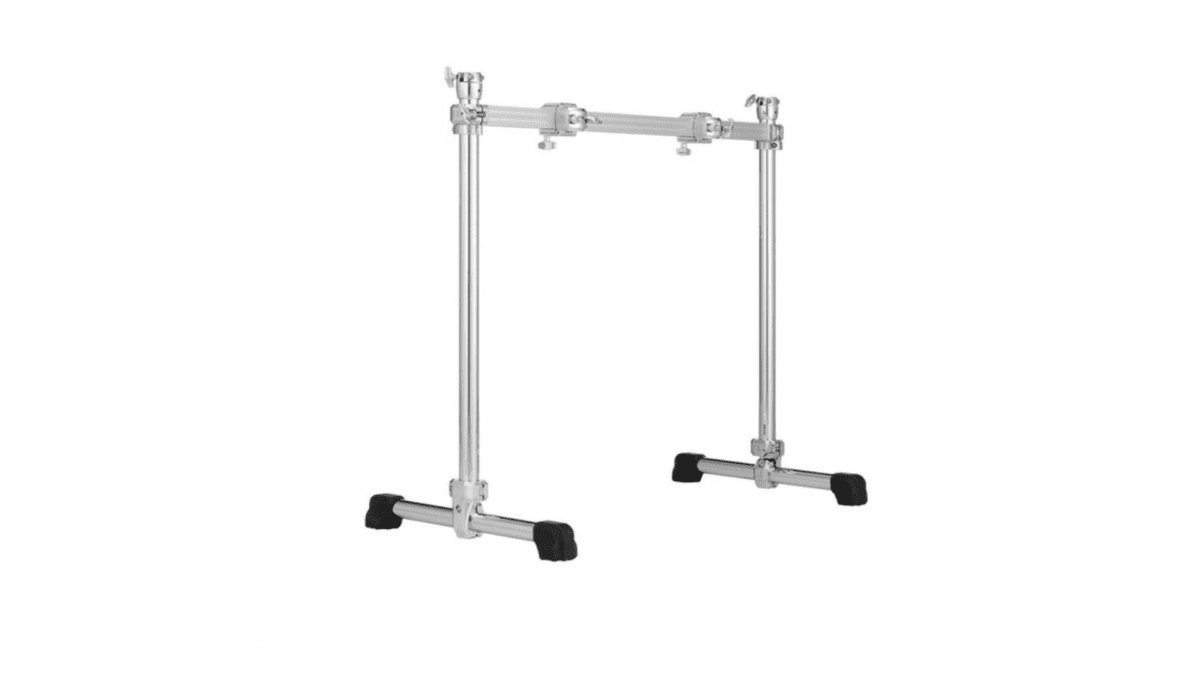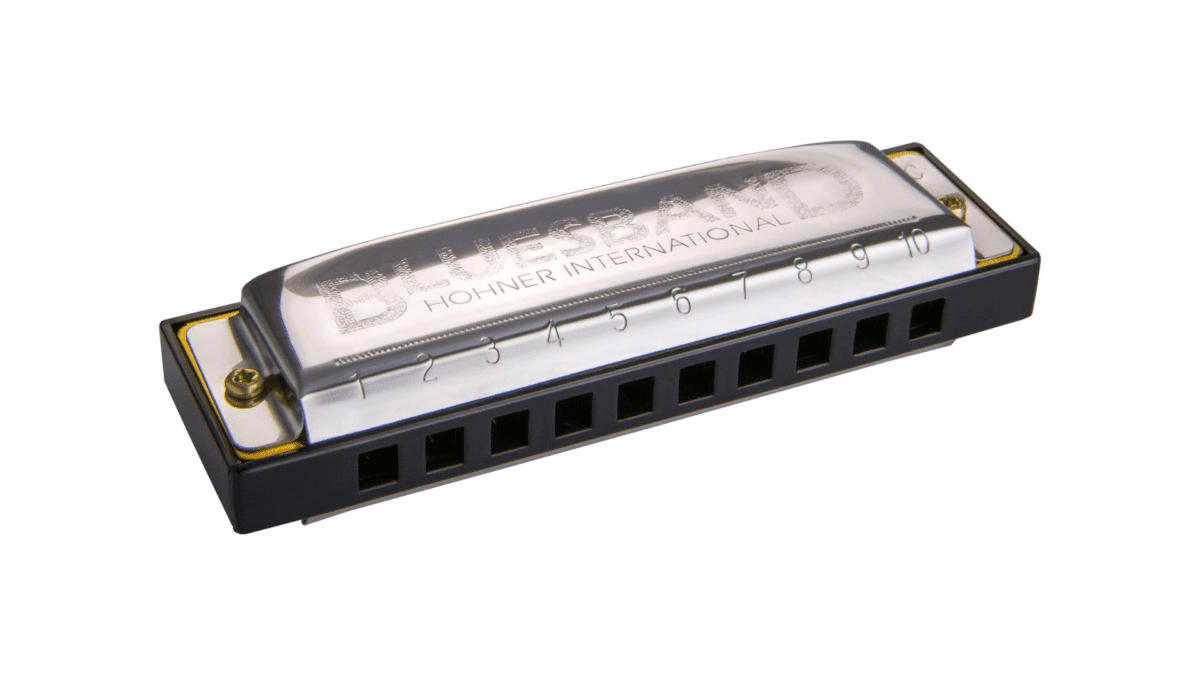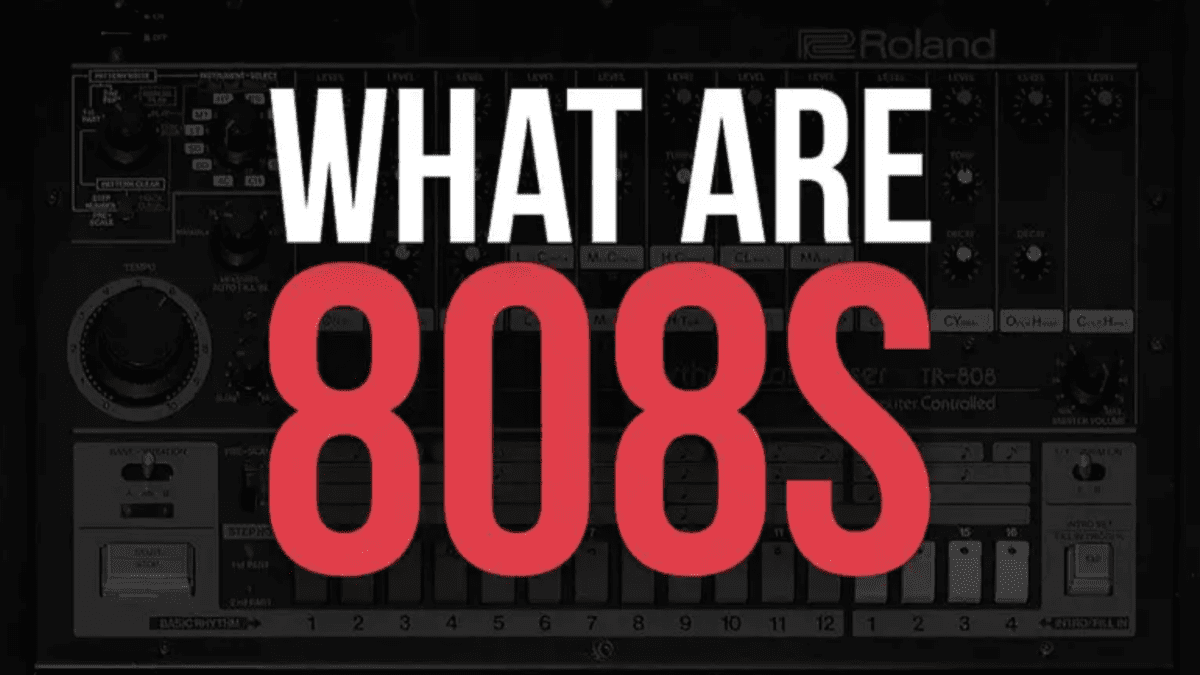If you’re relatively new to the world of piano, you’ve probably heard digital vs acoustic piano thrown around alongside terms such as ‘keyboard’ and ‘electric piano’. Believe it or not, these are all different things, albeit with some crossover.
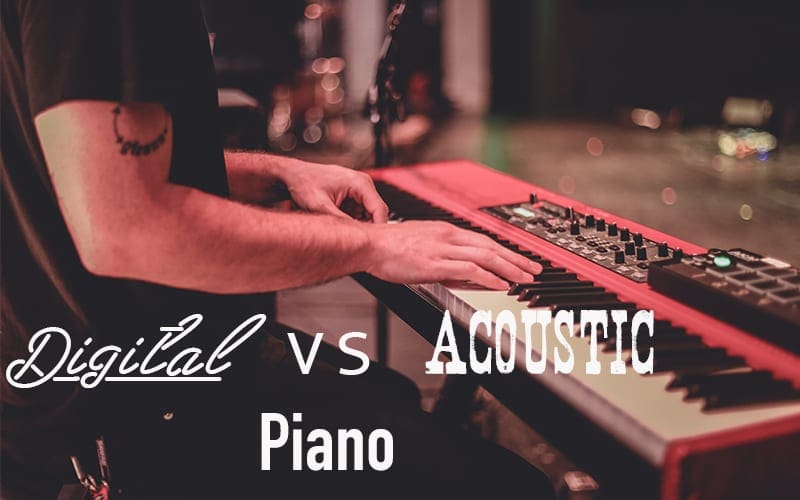
My love affair with the piano goes back to early childhood. My father is a piano tune who has tuned pianos for world-famous artists. To the point where he is thanked on platinum-selling album sleeves. So, keyed instruments were always in our house. And there were often piano actions stretched across the dining room table, as my dad carried out restorative repairs.
In this article, we’ll focus on the question of ‘digital piano vs acoustic piano’. I’ll answer the questions of ‘What is an acoustic piano?’ and ‘What is an electric piano?’. And for the sake of completeness, I’ll also cover keyboards, electric pianos, and the key differences.
We will then compare and contrast so you can get a better picture of which might suit you best.
What Is An Acoustic Piano?
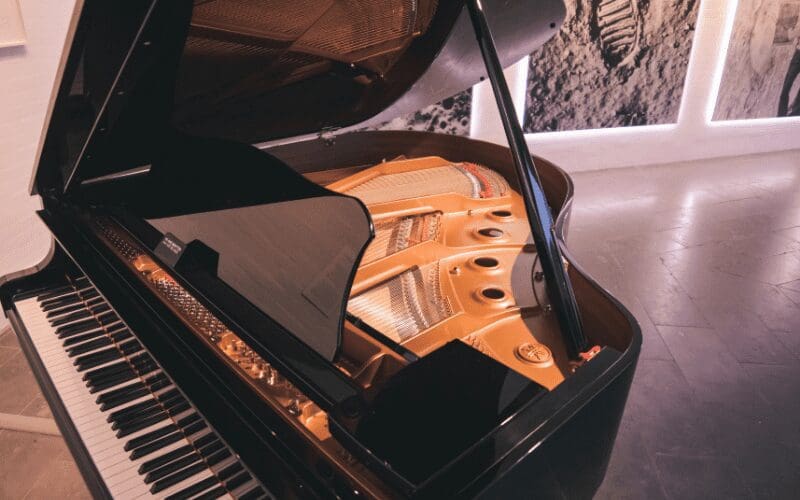
Acoustic pianos come in a couple of different form factors – Grand Piano, Baby Grand, Upright, etc. But, they all have the same basic premise – sound is generated by pressing the keys which cause a hammer (covered in felt) to strike a string (or even 2 or 3 strings).
In a grand piano, these strings stretch backward on a bed from the rear of the keyboard. This gives the piano its famous shape. As the bass strings need to be longer than the higher strings to meet the pitch.
In an upright piano, the basic premise is exactly the same. However, rather than the strings stretching backward, they instead reach down vertically which takes up a lot less room than a grand.
The difference in design and shape has a profound effect on the overall sound. Grand pianos have a much broader, richer, and louder tone. This makes them perfect for auditoriums and classical music. Whilst uprights tend to have a boxier tone that fits perfectly into a more folky/pub setting. Sometimes an upright is also tuned slightly out of tune to get that classic honky-tonk sound.
What Is A Digital Piano?
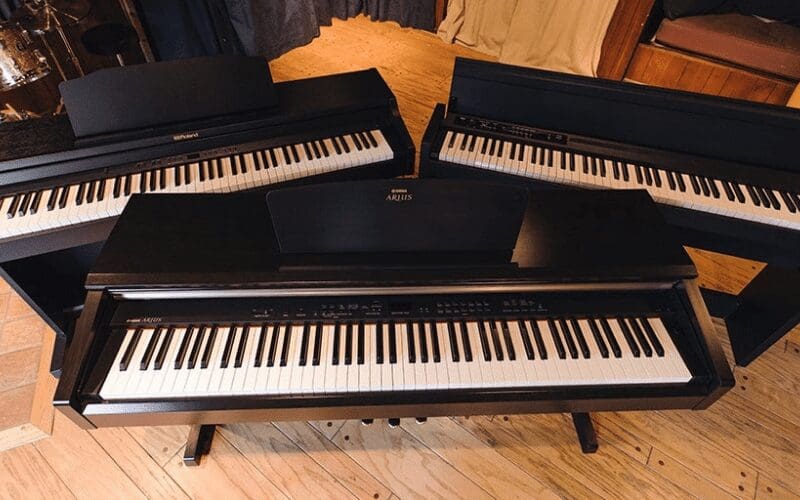
A digital piano is the electronic counterpart of an acoustic piano. They generally have weighted keys so they feel more like a real piano. But rather than a hammer hitting a string to create a sound, the digital piano contains a circuit board and piano samples. This is so that it can register how hard a key is hit, if the pedal is pressed, etc., and generate a digital sound that is very similar to an acoustic piano.
Digital pianos also come in a range of different form factors. From the Yamaha Clavinova, which looks more like a desk with a keyboard at the front. To a digital stage piano which looks more like a traditional keyboard. Through digital pianos engineered to look more like baby grand pianos. These have speakers beneath the lid where the string bed would normally appear.
How Do These Differ To Keyboards?

Keyboards are generally multi-voiced instruments. They tend to have unweighted keys and hold within their sound library a range of different voices. From piano sounds through to string pads, drums, bass, guitar, applause, and helicopter to name a few.
They are of course in some ways more versatile than a digital piano. But generally, they don’t play quite as nicely as a piano, and the piano sounds they have tend not to be the best. Although, one slight exception to this rule would be the Nord range – which is absolutely incredible!
Electric Pianos don’t have a pre-stored library of sounds they can call up like a computer in the way the keyboards or digital pianos have. Instead, they are more like acoustic pianos. As they have hammers that are activated when a key is pressed.
The hammer strikes a metal tine (or bar) within the body of the electric piano and that tine is tuned to a note. There is a magnetic pickup (like on an electric guitar) above each note that ‘picks up’ the sound which is then sent through to a speaker.
Electric Pianos don’t sound like acoustic pianos. They don’t have multiple different sound capabilities – they just do one sound incredibly well. The most popular models are the Fender Rhodes, the Wurlitzer, and the Yamaha CP – all of which are gorgeous.
Check out our article about keyboards to learn more!
Digital Piano vs Acoustic Piano
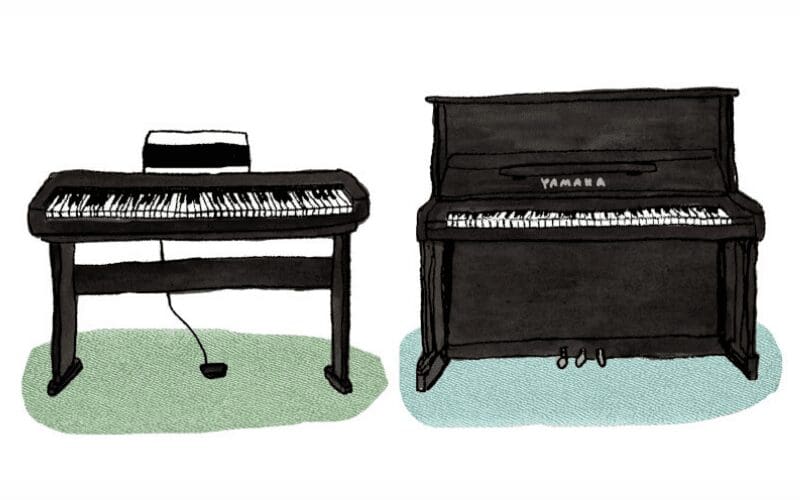
So the main difference between the two is of course that acoustic pianos have strings. But, that one difference has a huge impact on how differently digital and acoustic pianos can be used.
Acoustic pianos require pretty regular maintenance. You generally need to tune them 1-2 times per year. Or, more regularly if the instrument is subject to significant changes in temperature or humidity or is moved around a lot. This isn’t as easy as tuning other instruments. So you’ll need to employ the services of a piano tuner who will tune the piano for you.
If the piano is quite old, it may also need other reparations such as key replacement. Or, refurbishing the felt heads of the hammers.
None of this applies to digital pianos. Because they don’t have strings, they never need to be tuned, so they are certainly much easier to maintain.
Of course, because they are electric, it is also much easier to control the volume. Whereas with an acoustic piano, although they are very expressive, there is a certain amount of noise you just have to make.
Some digital pianos have speakers built in but generally, the stage models don’t. This makes them more portable. Of course, the assumption is that they will be plugged into a larger PA system for any performance.
So one consideration is that you might need at least 2 plug sockets if your piano is a stage model – one for the instrument itself and one for an amplifier.
Digital vs acoustic piano: Which Is Best For A Beginner?
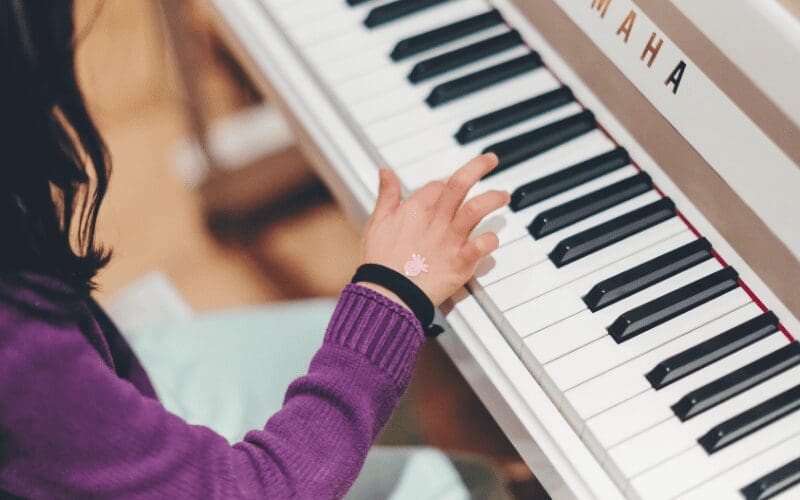
This is a really difficult question. For me, a piano sitting in the corner, ready to play as soon as you sit at it, is inviting. And growing up with that easy access to the instrument was key to learning to play it.
There’s nothing like the sound and feel of a real piano. You can feel the vibrations on the strings under your fingers through the keys when you play. The real thing is so responsive to how hard you hit the keys.
But, of course, there is the question of volume. If you have neighbors and are gigging with an acoustic piano, it’s impossible without some serious protective gear. You will also need a piano tuner on staff.
If you’re a beginner, I would probably recommend a digital piano.
It’s easy to practice at any volume, so you won’t disturb anyone. It’s also just as easy to record when you come to it. And if you get a stage piano, you have the option of performing live very easily. Also, not to mention that you have none of the maintenance issues such as tuning. In addition, the more modern digital pianos have a pretty good sound and aren’t too expensive either.
If you’re in the market for a digital piano for home – a Yamaha or Roland is probably a good investment.
For something for the stage, I’d recommend a Nord as they are the best but do cost a bit. There is also the Yamaha P-45, which is great too!
Our Conclusion On Digital Pianos vs Acoustic Pianos

So there you have it! A guide to the differences between Acoustic and Digital Pianos.
I’m a bit of an audiophile so the real thing appeals to me. I have even got a real vintage 1981 Fender Rhodes because it has a real electric piano sound. But the convenience of a digital piano probably makes it the best choice for most people!
As always, it is worth trying out multiple options before making a purchase, each one mentioned in this article is good but everyone has their preferences. If we helped you make a decision tell us what you thought in the comments!





